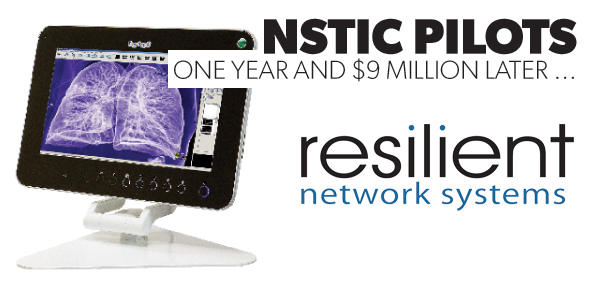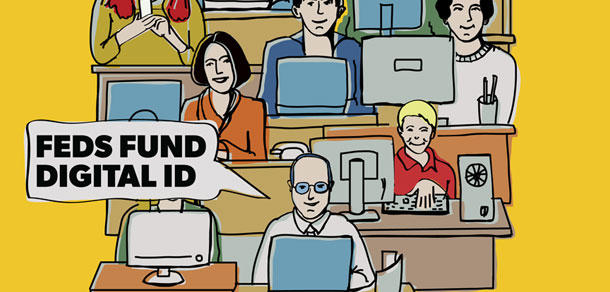Resilient Network Systems NSTIC pilot update
Testing use cases in health, education
04 October, 2013
category: Digital ID, Government
A patient with a pacemaker is on a business trip when he starts feeling odd. It’s not an emergency but he wants to see a doctor. Having his physician send all the appropriate medical data to a local physician, however, can be daunting.
Resilient is trying to fix this problem setting up a network that will enable the primary care physician to send the patient’s information to another physician with high-assurance identity vetting and authentication, says Joe Glynn, director of program management at Resilient Network Systems. “We identity proof the physician and authenticate via a second factor that they are the correct physician before they can access the referral package,” he explains.
The health care pilot also includes a clinical support engine that can help the physician receiving the referral make appropriate decisions, says Britton Wanick, vice president of technical services and operations at Resilient Network Systems. When the referral package is sent to the other physician it is reviewed by the engine along with anything the new doctor may recommend. The support network can also ensure that new medications don’t have harmful interactions with existing medications.
“We look to provides a national capability that can get to any doctor anywhere for a referral but then also provide contextual information so we can raise the quality of care,” Wanick says.
Resilient is working with Gorge Health Connect, a health information exchange in Oregon, and San Diego Beacon Health in California. The pilots will be rolling out in September and October. Neither of these health networks have fully made the move to electronic referrals so Resilient is helping with that process, Wanick says.
Resilient is working on a separate pilot with school children and the education sector. “We’re attempting to enable appropriate access to student records while also enabling student and parent access online media and education material,” says Wanick.
Resilient is working with school districts, online learning providers and school information systems to make sure the students are associated with the parents and both of those are associated with the school system, says Glynn. On the student side there has to be an additional level of obscurity to comply with the Family Education and Privacy Rights Act and the Child Online Protection Act.
Typically to gain access to a student’s online records, a parent uses the student’s user name and password, Wanick explains. This pilot will vet the parent’s identity and then provision access. This way it will give more assurance that only the parents and children have access to the records and better comply with federal legislation covering protection of children online.
On the digital media content side, the system will make sure that students and teachers are accessing the information, Wanick says. This makes sure that the content is being consumed correctly but more importantly, it makes sure the student accessing the data isn’t being tracked. “Their privacy is maintained and the provider’s aren’t mining data about the student and parents for later use,” Wanick says.
This part of the pilot is rolling out to school districts in September and October.




